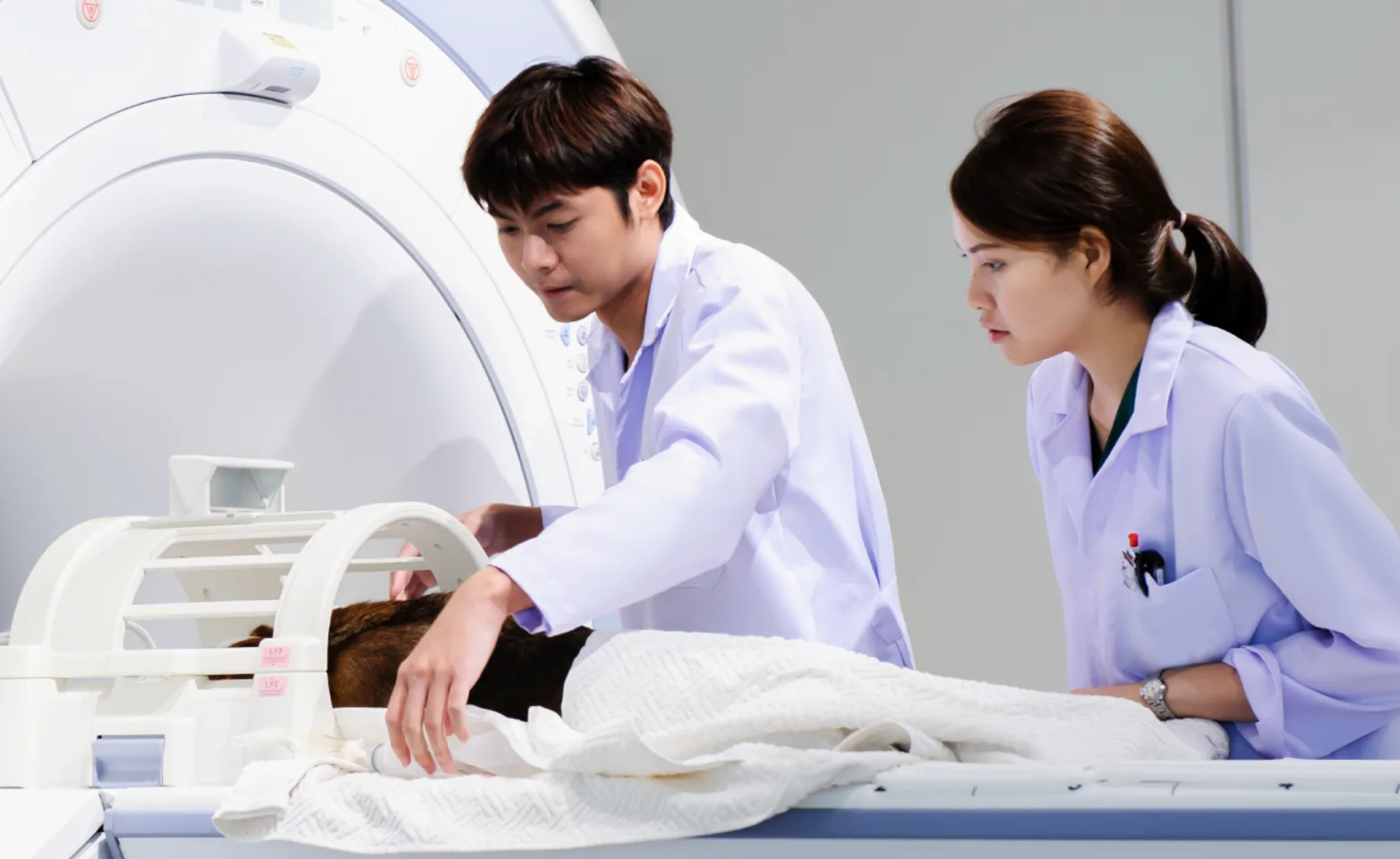Anne Arundel Veterinary Emergency Clinic (AAVEC)

Veterinary Neurology

What is Veterinary Neurology?
Veterinary neurology is the field of veterinary medicine focused on treating the brain, muscles, nerves, and spinal cords of animals. In addition to earning a doctorate degree, veterinarians are required to complete specialized training programs and go through an extensive examination process to become a board-certified veterinary neurologist. Some of the medical concerns that a veterinary neurologist may treat are:
Sudden behavioral changes
Seizures or tremors
Birth defects
Tumors
Abnormal and uncontrollable head tilting
Paralysis or limb weakness
Odd gaits or other walking issues
Injuries to the spinal column
At Anne Arundel Veterinary Emergency Clinic, our advanced, fully equipped facilities and exceptional veterinary neurologists are here to help. Learn more about our highly qualified neurological team at AAVEC in Annapolis, MD.
Our Expert Veterinarians
See More
What to Expect
Depending on what your pet has been referred for, our neurological team may recommend one or more of the following procedures:
MRI: This medical imaging technique generates internal images and may be done to diagnose brain, spinal cord, and/or nerve diseases.
CT scan: This enhanced x-ray imaging technique can help with the diagnosis of a variety of internal issues.
Biopsy: If your pet has a tumor or other abnormal growth, a biopsy may be required to extract a sample of cells or tissue to determine if it is cancerous.
Spinal tap: This specialized procedure involves inserting a needle into an animals spinal canal to collect cerebrospinal fluid, which can help the neurologist to diagnose a wide range of potential problems.
After your pet has been seen and tested by one of our skilled neurologists, they will receive a diagnosis and a customized treatment plan that may include medication, surgery, and/or physical therapy.If you have any questions about how our veterinary neurological team can help your pet, please call us at (410) 224-0331 or fill out our Contact Us form to send us an email.



